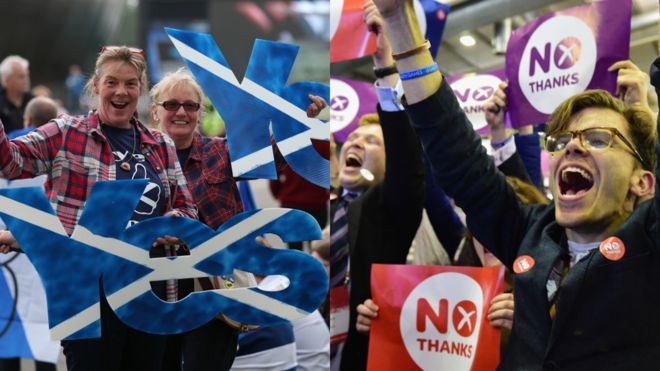Independence still game changer
In 2017, radical and progressive ideas are more popular in Scotland than for many decades. Yet the left is more diffuse and fragmented than ever before. There are radical leftists in the Scottish Green Party, RISE, the SSP, the Labour Party, the Communist Party and in groups like Common Weal and Women for Independence. And, there are more socialists in and around the SNP than in all of these organisations combined.
There is, in addition, the great fault line that divides the majority pro-independence left from the minority pro-United Kingdom left. And just to complicate matters further, there is within the pro-independence left a wide spectrum of attitudes towards the SNP, ranging from those who believe the SNP can do no wrong to those whose hostility to the SNP matches that of the Daily Mail.
These divisions won’t easily be overcome, and I certainly have no grand plan to bring about left unity. But as an independent left-wing activist who has no tribal allegiance to any political party, I would raise the following points.
First, I have great admiration for Jeremy Corbyn, who has electrified British politics. But Scotland is a different country, and the national question is here to stay. Even if Corbyn had won the general election – and perhaps especially if Corbyn had won the general election – the independence movement would have been strengthened rather than weakened.
Why? Because a Corbyn government, trying to run a capitalist economy while dealing with enormity of Brexit, and surrounded by hundreds of sullenly hostile MPs from his own party, would have run into serious difficulties. Even Attlee only lasted six years, while Harold Wilson, elected in 1974 on a far more radical manifesto than Corbyn, was forced to resign within two years while the IMF forced his successor to carry out drastic spending cuts. The result was the ‘Winter of Discontent’ and the rise to power of Margaret Thatcher.
When Kezia Dugdale says that independence is dead, it betrays her lack of any sense of Scotland or its history. Even five years ago, the idea that the SNP would hold 35 Westminster seats in Scotland would have seemed unthinkable. Of course, there will ebbs and flows, as there have been over the past half century, but the trend of history is that the flows are becoming stronger and the ebbs weaker.
In one way, those on the Labour left who argue that independence is a diversion from class politics have a point. But that debate won’t go away. For much of the past 50 years, Scotland has been consumed with conflict over national autonomy versus unionist centralism. Independence would allow to us move on, leave the endless constitutional debates behind us and move towards the usual class politics of left and right. 
A Scottish Labour Party fusing the principles popularised by Corbyn with support for independence could look forward to shaping a brand-new nation state. But if the party continues to stand with the Tories and block the will of the majority of the working population of this country, it will end up on the wrong side of history. And that is a grim place to be for a party whose founding leadership was a century ahead of its time when it came to standing up for autonomy and democracy for Scotland.
The prospects for the left in Scotland are stronger than south of the border. In the general election, 64 per cent of Scots voted for the progressive left-of-centre manifestos offered by the SNP, Corbyn’s Labour Party and the Greens. In England, the figure was 44 per cent.
That differential political balance of forces also demonstrates where the SNP and the wider independence movement must now orientate if it is to succeed in delivering a majority ‘yes’ vote sometime between 2019 and 2022. Some SNP members have argued with me that most of the left is already in the bag for independence so we now need to concentrate on the middle ground. But politics is always in a perpetual state of flux. Attitudes in Scotland and across the Britain have polarised since 2014. The right is stronger – but so too is the left. It is the middle ground that has collapsed.
Finally, I would suggest that much of the non-SNP radical left avoid what Lenin called the infantile disease of ultra-leftism. Even after ten years in power at Holyrood in a time of austerity, the SNP has established itself as the main party of the Scottish working class. Yes, the SNP leadership has made mistakes and the Scottish Government has had failures as well as successes – but without the role of the SNP, the intense politicisation of the past few years would never have happened. The 2014 referendum campaign, ignited by the SNP, changed everything.
If the SNP sells out the independence movement, then shrill denunciation will be justified – but that is not where we are today. The biggest enemies of progress in Scotland are the Tories, and those in the Scottish Labour Party who deny our nation its right to self-determination. We need open, honest debate. But to overcome the might of the British establishment, we also need unity of the forces that stand for the most radical next step forward for Scotland – independence.
Carolyn Leckie is currently working as a trainee solicitor, is a member of Women for Independence national committee, is not a member of any party, and was a former SSP co-chair and SSP MSP. She writes a weekly column for The National.



